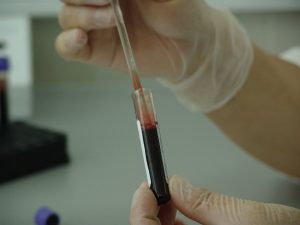Updated on October 29, 2020
Nonviolent Felons Must Submit DNA

Dissenting Judge Betty Fletcher said the ruling “approves, without flinching, a statute that affects a far broader and far less justified erosion of the Fourth Amendment.”
The Case
The decision was made in the case of Thomas Kriesel, who refused to submit a DNA sample after he was released from prison.
Kriesel was charged with possession of methamphetamine with intent to distribute and sentenced to two years in prison plus three years of supervised release. He is still on supervised release but has been working and law-abiding, according to attorney Colin Fieman.
The Law

Judge M. Margaret McKeown, who wrote the panel’s majority opinion, said the “diminished privacy interests” of convicted felons are now outweighed by the government’s interest in effective law enforcement.
Fletcher did not deny the potential benefits of DNA collection, but she added that the law “requires constitutional means, not just effective ends.”
Fieman said he plans to seek another hearing, this time before the entire appeals court panel.
“We’re just hopeful we’ll get further review because it is an important issue,” he said.
(Source: Associated Press)
Charged with a crime? Discuss your legal options with an experienced criminal defense attorney. Contact us today.





